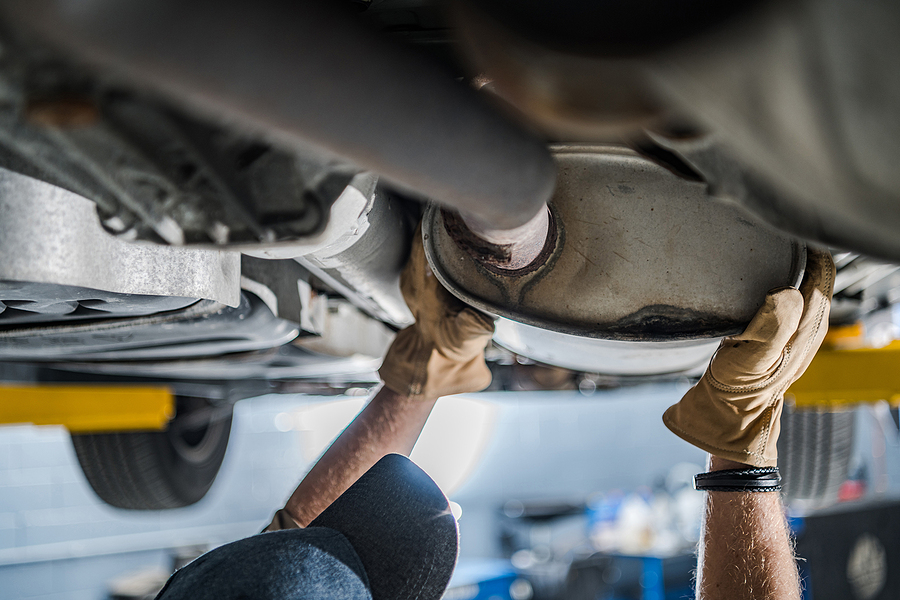
Stronger Laws Requested
Legislators at both a Federal and state level have recently been encouraged by ISRI, the Washington-based Institute of Scrap Recycling Industries, to pass stronger laws to help prevent against catalytic converter theft, while simultaneously promoting legal recycling.
Each year, over 30 million catalytic converters are legally recycled, and are mainly sourced from end-of-life vehicles. However, many catalytic converters are not acquired or sold in a lawful manner, which has become a growing issue.
ISRI has partnered up with various law enforcement and stakeholder groups to reduce the general theft of catalytic converters. Organizations such as the International Association of Chiefs of Police, the National Sheriffs’ Association, the International Association of Crime Analysts, and state associations for police chiefs have collaborated to explore potential legislation which could act as a form of deterrence for these crimes.
National and Regional Identification Protocol
The Institute of Scrap Recycling Industries (ISRI) has issued an appeal to both Congress and state legislators, asking the organizations to design a national registry, and a regional identification system with hopes of significantly reducing catalytic converter theft.
To ensure that working catalytic converters are accounted for, ISRI suggests adding these devices to the proposed state and national registries. This would require permanently marking each converter with a unique identifying number at its initial sale with a vehicle.
ISRI advocates for the national registry to also tag cars at the time of initial sale with an identifying number. To facilitate this process, ISRI is prepared to collaborate with states that have existing registry requirements in place.
Detached Catalytic Converter Regulations
Furthermore, ISRI emphasizes the need for limitations concerning who can possess detached catalytic converters or catalytic converter substrates. The organization advises that these should only be permitted to those running a standard business, or individuals with proof of rightful ownership. As ISRI states, “This would provide law enforcement information necessary to identify entities that would be allowed to legitimately purchase detached catalytic converters.”
ISRI is even recommending that Congress and state legislators demand documentation of all detached catalytic converter purchases, regardless of the buyer or seller. The organization advises that records detailing the transaction date, parties involved in the sale, as well as the number of converters sold, all be meticulously tracked. Additionally, details of the transaction should be kept for both individual customers and business-to-business sales.
“The recycled materials industry has a history of working with law enforcement and local authorities to help combat metals theft, including catalytic converters,” Robin Wiener ISRI President states. “We are urging lawmakers—at both federal and state levels—to consider taking action to help reduce these crimes which are impacting consumers and recycling facilities where thefts are becoming all too frequent. In states where similar legislative principles have been put in effect, we have seen positive results.”
The Catalytic Converter Theft Working Group is Created
In response to the uptick in catalytic converter theft, ISRI created the Catalytic Converter Theft Working Group in 2020, consisting of volunteer members from around the country.
This group serves as an information hub, connecting recyclers and law enforcement so they may easily share insights on crimes, and facilitate training sessions to combat illegal activity. Together, this collaborative effort has resulted in the proposed policy recommendations.
Executive Vice President of Atlanta-based Pull-A-Part LLC, and Chairman of the Working Group, Steve Levetan, just announced that the Catalytic Converter Theft Working Group has two directives, “First, metal recyclers wanted to stop these crimes which are impacting not just consumers but also recycled metals companies falling victim to these thieves,” he said. “Second, we wanted to leverage the industry expertise to craft solutions that have been proven to bring real results to stopping this type of crime. We owe it to our communities to take action, and that’s exactly what we are doing in state after state.”
A Powerful Platform
Levetan states that ISRI members who join the working group have a platform to share insights on both acquiring catalytic converters, and defending against converter thefts. According to him, the group gathers facts on the legitimate commerce of converters as well as the critical strategic parts retrieved from them.
To comprehend and combat the issue of catalytic converter theft, ISRI’s chief lobbyist, Billy Johnson, affirms that the working group includes stakeholders and industry leaders from various sectors. For a multifaceted approach, these experts encompass members of law enforcement, recycling operations, dismantlers, precious metal refiners, and more.
“While not all stakeholders agree on every idea and solution, this group continues to bring all the parties together to work through these issues in a collaborative approach,” Johnson explained.
According to ISRI, the association and its working group seek to discover ways to minimize catalytic converter theft, as well as assess the impact of existing programs and laws on this issue. It is the hope that in time, catalytic converter theft will be greatly minimalized.
